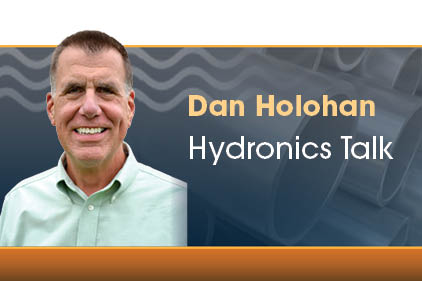These books will provide perspective on current events
Literary bonanza.


|
I spend a lot (actually, most) of my time reading books.
They give me a perspective that I don’t get from newspapers, TV or the Internet. That media is too up-to-date and too quick to change. I like to delve into things because I’m old and looking for that elusive quality called wisdom. I think this comes mainly from reading books and thinking about what I’ve read. And since many books are lengthy and often difficult, I have to work at this, but I’m at a good age for this work.
There’s a lot going on in the world right now and these events are affecting the price of fuel and the type of fuel we’ll be using in the days ahead. That’s going to have an impact on our businesses. Russian oil moves through Ukraine to Europe and this may change by the time you read this. We may be seeing more geothermal in Europe and elsewhere, and that economy of scale may change our market in the U.S. A few years ago we thought liquid natural gas was the solution to our energy problems, but then fracking arrived and changed things. Nuclear power was on the rise again until that tsunami hit Japan’s Fukushimi reactor. Current events affect our businesses.
Current events also affect our health because we worry and often feel helpless. CNN will focus 24/7 on a missing plane until some are afraid to fly, and that affects prices. So I reach for books. I want to understand the issues behind the current events. And If that approach makes sense to you and if you think understanding issues will help you to plan better for your business in the days ahead, then here are some good places to begin. I read these books recently and they go together very well, especially if you read them in this order:
“The Quest – Energy, Security and the Making of the Modern World”by Daniel Yergin. This book arrived in 2011 and as I read it, I could see Mr. Putin’s takeover of Crimea in the works. Watch that news on your TV and you’ll think of impending war, but when you read this book you will better understand the market forces at work over there, and you also begin to realize how very complicated Russia is. And that’s why it’s good to read these next books rather than listen to the angry commentators on the radio and cable TV.
“Genghis Kahn”by Jack Weatherford. Sure, he gets a bad rap but he was a major force in civilizing the world. Before there was a Russia there were Mongols and they set the stage for all that followed.
“Peter the Great”by Robert K. Massie. The newspapers tell me that Mr. Putin aspires to be like Peter the Great, so it’s good to know a bit about that tall fellow, what he did and how he did it. And he did a lot. And brutally.
“Catherine the Great”by Robert K. Massie. Same here. Catherine charmed the world with words just before rolling over the Crimea. Sounds like a current event, doesn’t it? All that we’re seeing today has happened before. And did you know that Kiev was there before Russia existed?
“Ruska”by Edward Rutherferd. A wonderful novel about a fictional village in what will become Russia. Mr. Rutherferd brings the region to life over hundreds and hundreds of years, and this will help you better understand the people.
“War and Peace”by Leo Tolstoy. Because you can’t understand Russia without understanding Napoleon.
“The Romanovs”by Robert K. Massie. Back to Mr. Massie as he covers the last czar, his family’s fall and the start of the revolution.
“Stalin”by Edward Radzinsky. And this monster showed up next. When you think you have problems, when your day doesn’t seem to be going well, read this one.
“Stalin, Breaker of Nations”by Robert Conquest. And this one.
“The Gulag Archipelago,”volumes 1, 2, and 3, by Alexander Solzhenitsyn. This will take a while to get through and you’ll be emotionally exhausted when you’re finished, but you’ll better understand how things get done in that country, both then and now.
“Gulag”by Anne Applebaum. Same here.
“One Day in the Life of Ivan Denovich”by Alexander Solzhenitsyn. So that you’ll consider and better appreciate your freedom.
“Revolution 1989”by Victor Sebestyen. Which leads us to the fall of the Iron Curtain and all that was behind that. This is a very important book in light of current events.
“The Dead Hand: The Untold Story of the Cold War Arms Race and its Dangerous Legacy”by David Hoffman. Here, you’ll learn how very close we once came to destroying the world. You’ll also think about the security of the nukes, which is why you should read this next book.
“The Looming Tower: Al-Qaeda and the Road to 9/11”by Lawrence Wright. Russia invades Afghanistan in 1979, which leads to Al-Qaeda. We help them fight the Russians. The FBI, CIA and NSA don’t share with each other and you know the rest of the story. Read on.
“Duty”by Robert Gates. The secretary of defense for both President Bush and President Obama has quite a story to tell about how our government works these days, and that made me want to learn more about how the politics of power has changed over the years, so I turned to Robert A. Caro.
“The Path to Power,” “Means of Assent,” “Master of the Senate,” and “Passage of Power,”all by Robert A. Caro. Each of these four books covers a part of Lyndon Johnson’s life. He was probably the most powerful politician we have ever had. Want to know how D.C. used to work? Read Mr. Caro.
“The Second Machine Age”by Erik Brynjolfsson and Andrew McAfee. And after sticking all of that into your noggin, read this book and dive into the world of self-driving cars, computers that can diagnose diseases better than doctors can, and all the other technological wonders that are changing the way we live, work and think. They all run on electricity and that’s a fuel. This book is fairly optimistic, but with undertones that will smack you in the head. Consider for a while our growing willingness to let the technology do our thinking for us these days and then read this one:
“Plato and the Googleplex”by Rebecca Goldstein. This is a disturbing book. Using Plato’s words, Ms. Goldstein has the old philosopher debate the folks at Google, a Bill O’Reilly type on the TV, a “Tiger Mom” and others. The subject is how to live an examined life, and it’s a good way to end our journey. Plato said that thinking is the talking of the soul with itself. It seems to me that these times call for a lot more of that.
HELPFUL LINKS:
Looking for a reprint of this article?
From high-res PDFs to custom plaques, order your copy today!






